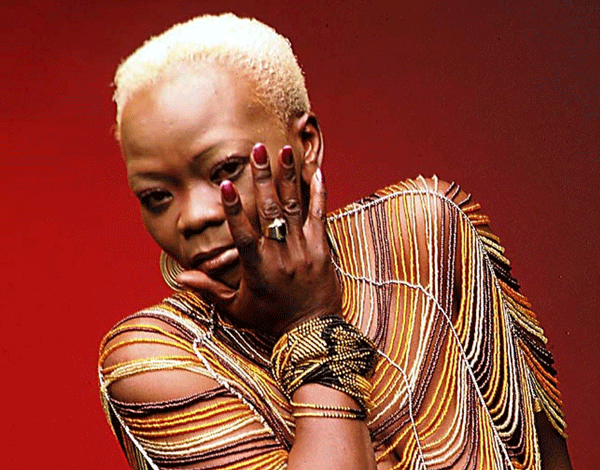Top 5 Songs By Brenda Fassie

Brenda Fassie, affectionately known as the “Queen of African Pop,” was a legendary South African singer, songwriter, and performer. With her distinctive voice, energetic stage presence, and ability to connect with audiences, she became an icon not only in South Africa but also across the continent. Her music spoke to the hopes, dreams, and struggles of the people, making her a cultural force during her time and beyond. In this article, we will explore the top five songs that showcase Brenda Fassie’s immense talent and enduring legacy.
- “Weekend Special” (1983)
One of Brenda Fassie’s most iconic songs, “Weekend Special,” was released in 1983 and became an instant hit. This infectious dance track features a fusion of bubblegum pop, disco, and township jive, creating a sound that resonated with both young and old listeners. The song’s catchy chorus and Brenda’s spirited vocals turned it into a national anthem for South Africa’s emerging black middle class in the 1980s. “Weekend Special” not only solidified Brenda’s place in the music industry but also established her as a voice of the people.
- “Vulindlela” (1997)
“Vulindlela” is undoubtedly one of Brenda Fassie’s most beloved songs. Released in 1997, the track’s vibrant melody and Brenda’s emotionally charged delivery make it a timeless classic. Sung in isiXhosa, the song tells the story of a woman advising her friends to move on with life after a breakup. Its message of resilience and hope struck a chord with listeners from various backgrounds, making it one of the most popular songs of her career. “Vulindlela” showcased Brenda’s ability to weave powerful narratives into her music, touching the hearts of millions.
- “Too Late for Mama” (1991)
“Too Late for Mama” is a poignant and deeply moving song that showcases Brenda Fassie’s versatility as an artist. Released in 1991, the song addresses the issue of domestic violence, highlighting the tragic consequences of abusive relationships. Brenda’s raw and emotional vocals, combined with the haunting melody, evoke a powerful sense of empathy. The song’s impact went beyond the entertainment sphere, shining a light on social issues and advocating for change. “Too Late for Mama” is a testament to Brenda’s commitment to using her music as a platform for raising awareness and promoting social justice.
- “Nomakanjani” (1999)
“Nomakanjani” is a soulful ballad that captures the essence of Brenda Fassie’s musical brilliance. Released in 1999, the song’s heartfelt lyrics and Brenda’s soul-stirring vocals tug at the heartstrings of listeners. Translated as “No Matter What” in English, the song’s message revolves around the unwavering nature of love, urging people to remain committed despite life’s challenges. Brenda’s emotional depth and vulnerability in this track further endeared her to her fans, solidifying her status as a musical icon.
- “Black President” (1989)
A true embodiment of Brenda Fassie’s activism and courage, “Black President” was released in 1989 as a tribute to Nelson Mandela, who was still imprisoned at the time. The song demanded Mandela’s release and captured the spirit of resistance against apartheid. Brenda’s powerful vocals and the song’s rebellious lyrics made it an anthem for the anti-apartheid movement. When Mandela was finally released in 1990 and became the country’s first black president in 1994, Brenda Fassie’s “Black President” became a symbol of hope and celebration for a new era of democracy in South Africa.
Brenda Fassie’s impact on the South African and global music scene is immeasurable. Her unique ability to infuse her songs with emotions, messages of hope, and social consciousness made her an inspiration to millions. As we remember the “Queen of African Pop,” we celebrate her legacy through her top five songs: “Weekend Special,” “Vulindlela,” “Too Late for Mama,” “Nomakanjani,” and “Black President.” These songs continue to resonate with audiences, serving as a reminder of Brenda Fassie’s immense talent, passion, and dedication to her art and the causes she believed in.




